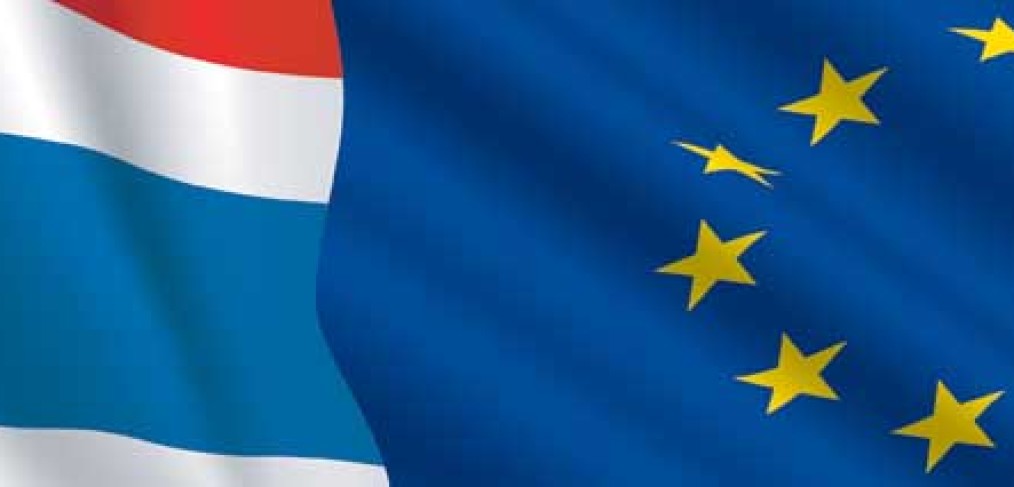
TEBA: The Business Matchmakers
 The Thai-European Business Association differs from other business groups in that it is self-financed. Horizon Thailand talks to its executive director to discover what it offers its members they can not find elsewhere.
The Thai-European Business Association differs from other business groups in that it is self-financed. Horizon Thailand talks to its executive director to discover what it offers its members they can not find elsewhere.
Some join a business association in order to expand their social network, others to increase their chances of business success. The Thai-European Business Association (TEBA) represents those who fall firmly in the latter camp.
“We focus more on business than on social networking. We wanted to create a true Thai-European business association,” Hugh Vanijprabha, TEBA’s executive director, tells me over a cup of coffee in Starbucks – a most non-European activity – but TEBA, established in 2009, is not a strictly Thai-European affair.
While some 60 to 70 percent of its members are European companies and the bulk of the rest Thai, there are a few US interlopers. “We have some American companies,” says Vanijprabha. “We look at their objectives and if they are in line with our objectives then we ask our members if we can endorse these companies to join us.” There’s hope for our Seattle-based hosts yet then.
TEBA might not be the place to meet your next golf partner, but it does play an important role in matchmaking Thai businesses with potential European partners and vice versa. “We want to promote trade and investment between Thailand and Europe,” Vanijprabha explains.
For Thai members this involves providing advice and support on potential trading partners, while for European companies this involves both trade and investment with Thailand.
As TEBA receives no funding from governments or the EU, the association is reliant upon revenue from the tailor-made services it provides members. These include cross-sectoral breakfasts – where companies are invited to talk about what they are looking for in terms of human resources, logistics costs and automation – as well as a range of capacity building programmes that address members’ needs through training sessions, workshops and missions between Thailand and Europe. There is also an information service and helpdesk for local SMEs keen to export to Europe.
Vanijprabha believes there is a major gulf between Thailand and Europe in terms of capacity and cultural understanding. He feels that many young Thais are graduating from university without the skills required to work in key sectors, such as aerospace and automotive industries, where European companies are looking to invest. EU companies are often ignorant of Thai culture which can become a barrier to forming business partnership, he says. This is why TEBA is currently working with the Ministry of Education to develop a public-private partnership scheme.
“We are bringing in European companies to partner with a local [educational] institution,” he says. “They [the students] get trained in the industry but get educated in the institution, so that at the end of the course they are able to meet the industry requirement while getting a degree.”
Another area in which TEBA has been working closely with government is by partnering the DITP in promoting Thai restaurants through the ‘Kitchen to the World’ campaign. TEBA officials visited Thai restaurants in Europe – mainly in Germany and the UK – in order to discover what major obstacles they face in business.
“Most of the Thai restaurants were missing some of the main Thai ingredients so we contacted the suppliers here to get them in touch with the restaurants in the UK,” he says. “Those are the things we can resolve at the private sector level.”
Another concern was the obstacles that many Thai chefs found in obtaining work permits for Europe.
“It is so difficult for Thai chefs to apply for work permits to go and work in the UK,” he says. “There are a lot of cooking schools around Thailand now. These need to be standardised … to be able to have some sort of certification – to be supported by, say, the Ministry of Education – that will be recognised by the UK government as meeting an acceptable international standard.”
Vanijprabha sees harmonisation and standardisation as vitally important areas, not just within Thailand but across ASEAN as a whole. As part of the European Business Association (EBO), TEBA works with eight partner associations across the region — currently there are no associations in Myanmar or Brunei — to provide members with advice on trade with the other ASEAN nations. This is only something that will increase in importance as the region readies itself for the ASEAN Economic Community (AEC) in 2015.
“When European companies invest in Thailand it doesn’t mean they are only looking at the Thailand market, they are also looking at the ASEAN market and that is the key for European investment today,” he says.
While TEBA may not have the same corporate social responsibility exercises as other chambers and associations, Vanijprabha feels that its capacity building activities in accordance with its mission to “enhance the country’s competitiveness entering ASEAN integration in order to support trade and investment between Thailand and Europe” benefits the country as a whole, rather than selected charities.
Born in Thailand but educated in the UK, where he worked until he was 30, Vanijprabha is passionate in his belief that both Thailand and Europe can benefit from closer ties.
“The strength of Europe is in its innovation and technology,” he says. “It’s not just about promoting this technology but how do you find partnerships to localise this technology. We need to create partnerships based on the Europeans know-how and what is actually available within the country.”
Thai-European Business Association (TEBA)
Thaieuro.biz
